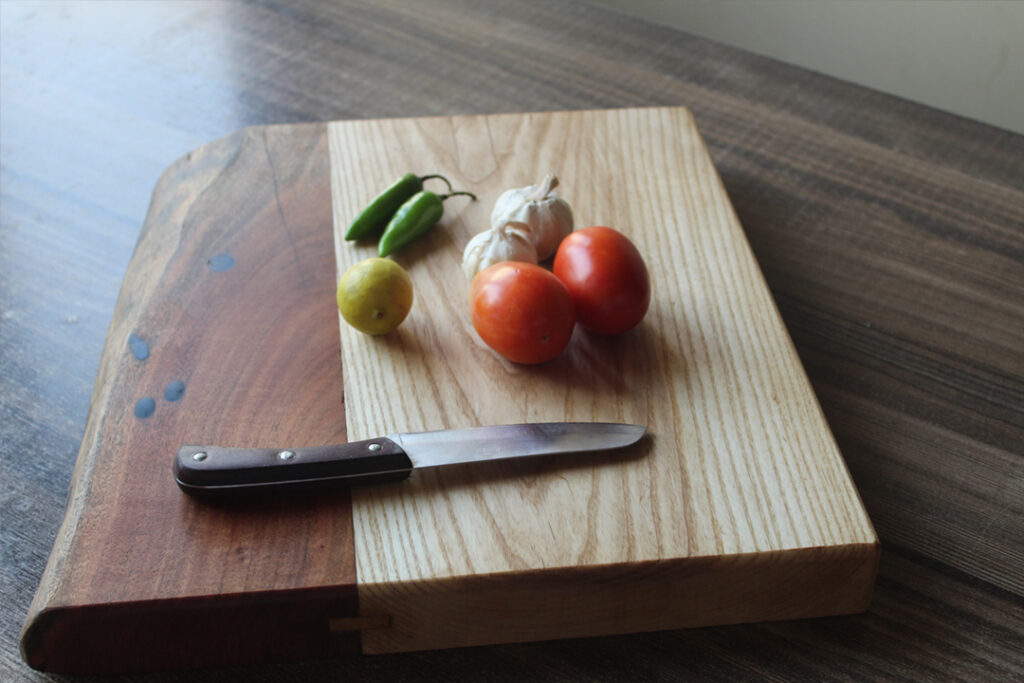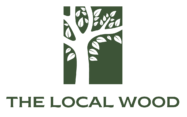Are Wooden Chopping Boards Safe?
In the world of home kitchens, where safety, functionality, and style converge, the often-overlooked chopping board plays a pivotal role. As the initial workhorse for many culinary creations, choosing a safe and durable chopping board is essential. Among the vast materials available, wooden chopping boards hold a special place. But are they safe enough to be a staple in your kitchen?
In this comprehensive guide, we’ll explore the safety aspects of wooden chopping boards. We’ll delve into their advantages, how to maintain them for optimal safety, expert opinions, and essential tips for choosing and caring for them. Let’s slice through the facts and myths about wooden chopping boards to ensure your kitchen is a safe, gastronomic haven.

Pros and Cons of Wooden Chopping Boards
Advantages of wooden boards include their natural antimicrobial properties, eco-friendliness, knife-friendliness, and aesthetic value. Wooden boards are less likely to dull your knife blades and are often more robust against heavy chopping.
Possible drawbacks are that they can harbor bacteria if not properly cleaned and may require more maintenance than other materials. Additionally, certain types of food, such as meat, can leave more significant traces and require extra care when using a wooden board.
Comparisons with Plastic and Bamboo Boards
Plastic boards are generally considered more sanitary due to their non-porous nature, making them less prone to bacterial growth. They are easy to clean and often more affordable than wooden boards.
Bamboo boards, a popular alternative to wood, are also renewable, knife-friendly, and perceived as more hygienic due to their tight grain structure, which prevents liquids from seeping in.
Benefits of Wooden Chopping Boards
While the safety of wooden chopping boards can be a topic of debate, their benefits are undoubted. Let’s explore the advantages that make these boards stand out.
Natural Antimicrobial Properties
Contrary to popular belief, studies have shown that wood can naturally kill bacteria. The porous surface of wood may actually pull bacteria beneath the surface, where it dies. In contrast, the bacteria on other materials, like plastic, may linger on the surface and can be transferred to other foods.
Gentle on Knife Blades
Maintaining the sharpness of your kitchen knives is crucial for safety and precision. Wooden boards, being softer than other common board materials, cause less dulling and can prolong the lifespan of your blades.
Aesthetic Appeal
From an aesthetic standpoint, wooden boards add warmth and character to your kitchen. Their organic look and feel often fit well with various kitchen aesthetics, from traditional to contemporary.
Safety Considerations
Despite their benefits, wooden chopping boards do require conscientious care to mitigate safety concerns.
Proper Cleaning and Maintenance
Routine cleaning with hot, soapy water after each use is crucial. Avoid soaking the board, as excess moisture can lead to warping. Additionally, periodically seasoning and oiling the board create a protective barrier against food and moisture.
Risk of Bacterial Contamination
Improper cleaning of wooden boards, especially after cutting raw meat, can lead to bacterial contamination. It’s important to sanitize the board thoroughly using a mixture of vinegar and water or a dilution of bleach to kill any lingering bacteria.
Avoiding Cross-Contamination
To prevent cross-contamination, reserve specific wooden boards for different types of food. Using one board for produce and another for meat, for example, can minimize the risk of spreading harmful bacteria from one type of food to another.
Expert Opinions and Research
To delve deeper into the safety of wooden chopping boards, we consulted food safety experts and reviewed relevant research.
Insights from Food Safety Experts
Many experts agree that the choice of chopping board material is less important than its maintenance. Ensuring rigorous cleaning and proper drying is universally recommended to maintain a safe kitchen environment.
Studies on Wooden Chopping Board Safety
Research has explored the antimicrobial properties of various woods, with some findings suggesting that certain woods may indeed possess beneficial properties. However, more conclusive evidence is needed to definitively claim that wooden boards are safer than other materials.
Tips for Choosing and Caring for Wooden Chopping Boards
For those sticking with a wooden chopping board, it’s essential to take these steps to ensure safe usage and longevity.
Selecting High-Quality Wood
Choose a dense hardwood like maple, oak, cherry, or walnut, which is less prone to scoring and harboring bacteria. Look for boards made from a single piece of wood or multiple pieces joined with non-toxic adhesives.
Seasoning and Oiling the Board
Regularly treating your board with food-safe mineral oil or beeswax will protect it from moisture and prevent the growth of bacteria. Ideally, do this at least once a month, or more frequently if the board sees heavy use.
Regular Cleaning and Sanitization
Cleaning your wooden board immediately after use with hot water and soap is a foundational step in kitchen hygiene. Sanitize the board as needed, particularly after food preparation activities like cutting raw meat, poultry, or fish.
Conclusion
The safety of wooden chopping boards hinges on two main factors: their inherent properties and the care with which they are maintained. While they do require more vigilance and proactive care, their benefits often outweigh the additional steps needed for safe use. By choosing high-quality boards, conscientiously caring for them, and being mindful of safe food preparation practices, a wooden chopping board can be a safe and reliable kitchen companion.
As you review your kitchen tools and practices, take the opportunity to reevaluate the chopping board at the heart of so much of your cooking. Prioritize hygiene and safety, and your culinary adventures will be as enjoyable as they are secure. So, are wooden chopping boards safe? With the right selection and meticulous care, the answer is yes — unequivocally.

